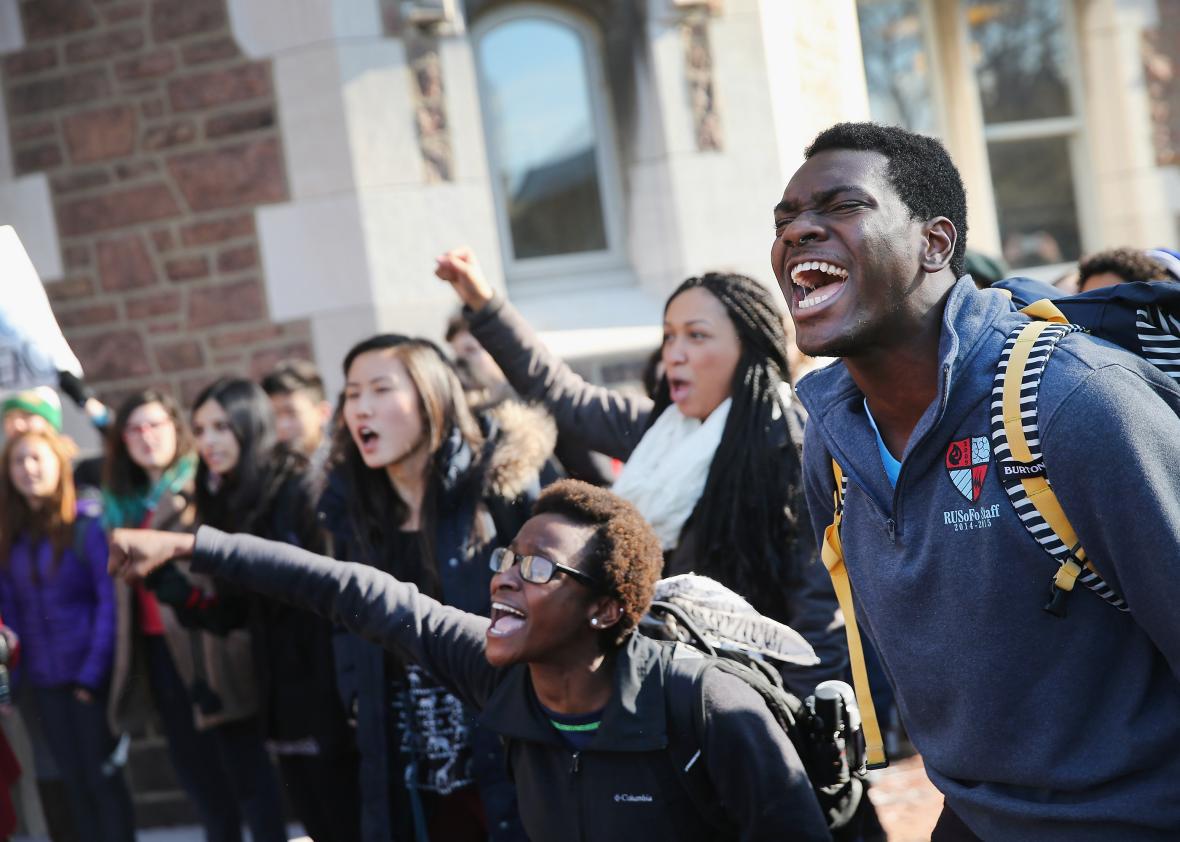The costs of morality: On March 2, Bell Curve author Charles Murray was scheduled to give a talk at Middlebury College. When anti-racism activists shut down the speech, conservatives and liberals identified the confrontation as an instance of the dangers of political correctness. Osita Nwanevu argues that we should reassess our blind dedication to protecting hate speech and our assumption that reason will emerge victorious from a free exchange of ideas.
A fine whine: Last year, Uber and Lyft pulled out of Austin after the city took a hard line on background checks. This week the tech elite descended on the city for South by Southwest—and began complaining that they couldn’t get around. The outrage was “a convincing demonstration of how thoroughly Uber and Lyft have pervaded the habits of high-level American executives,” Henry Grabar writes—and a sign of how blind that group is to the real mobility crisis plaguing U.S. cities.
Stacking the deck: The NCAA uses an analytical tool called the Rating Percentage Index to pick teams and seed the field. It was a viable method before the advent of advanced computer ranking systems, Ken Pomeroy writes, but now there are better methods available—and the outdated RPI unfairly disadvantages small schools.
The will of the people: In November, Oklahomans voted to reform their criminal-justice system, making low-level drug and property crimes misdemeanors instead of felonies and using the savings from those changes to fund rehab programs. The reforms will make Oklahomans’ criminal-justice system less barbaric—but legislators and prosecutors are doing their best to block progress.
For fun: 158 members of Ireland’s Parliament on how they feel about Beyoncé.
Now put your hands up,
Molly
